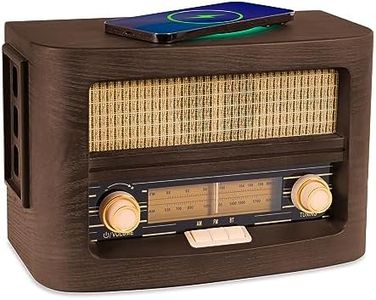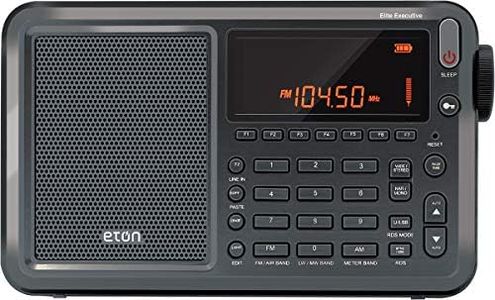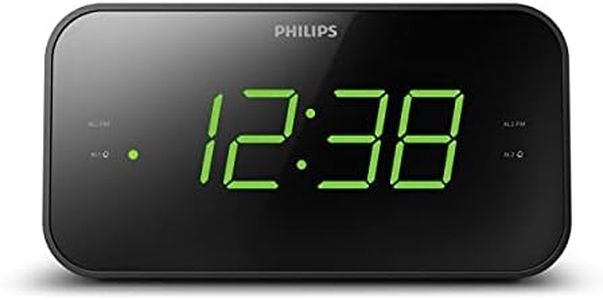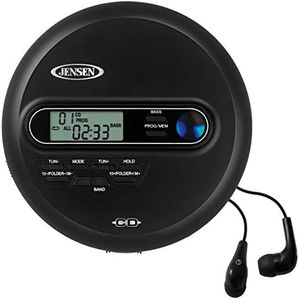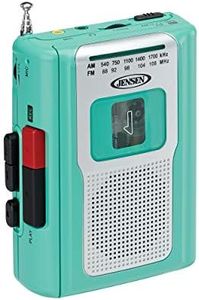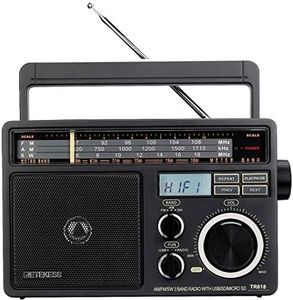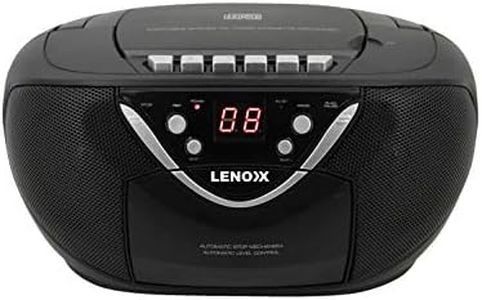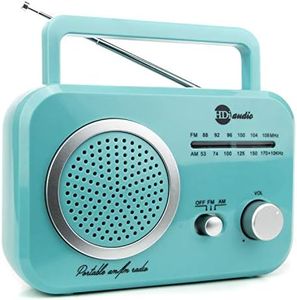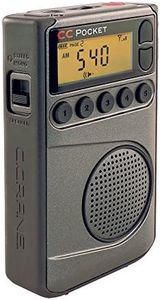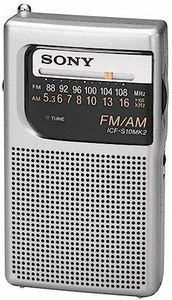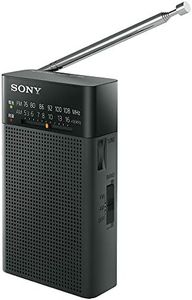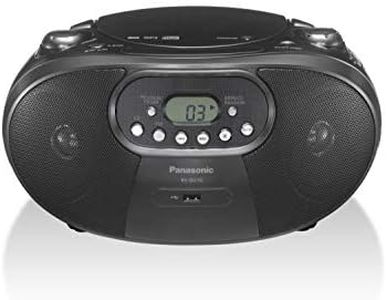We Use CookiesWe use cookies to enhance the security, performance,
functionality and for analytical and promotional activities. By continuing to browse this site you
are agreeing to our privacy policy
10 Best Am Fm Radios
From leading brands and best sellers available on the web.By clicking on a link to a third party's website, log data is shared with that third party.
Buying Guide for the Best Am Fm Radios
Choosing the right AM-FM radio is all about understanding how you’ll use it. People buy these radios for everything from casual listening at home to tuning in during camping trips or emergencies. The trick is to consider where, when, and how often you'll be using the radio, and what features matter most to you. Good reception, ease of use, portability, and battery life often make the biggest differences. Carefully reviewing each key feature before buying will help you find a radio that fits your lifestyle perfectly.Tuning MethodThe tuning method refers to how you select your desired stations on the radio. Some radios use manual dials, allowing you to precisely tune to a station by rotating a knob, while others feature digital tuning, where you press buttons to find stations or even save presets. Manual dials offer a nostalgic and simple experience, but may make it harder to find weak or distant stations. Digital tuners usually make station selection more accurate and let you quickly switch between your favorite channels. If you prefer convenience and precision, digital tuning might suit you, but if you enjoy the classic feel, manual tuning could be more appealing.
Reception SensitivityReception sensitivity is about how well the radio can pick up stations, especially distant or weak ones. Radios with high sensitivity are better at finding and clearly playing stations even in areas with weak signals. This is particularly important if you live in rural spots or plan to take your radio outdoors. Radios are often divided into basic, mid-level, and high-sensitivity; basic models may struggle with weak signals, while higher-end versions offer strong reception almost anywhere. Think about where you'll use the radio most—urban listeners can often use any radio, but for rural or travel use, look for higher sensitivity.
Sound QualitySound quality is about how good the radio sounds when playing music or talk shows. This depends on the size and quality of its built-in speakers. Small, portable radios might offer clear but simple sound, while larger radios can deliver richer and louder audio. For casual spoken-word listening, basic sound is fine, but if you enjoy music or want to fill a room with sound, look for radios with better speakers or the ability to connect to headphones or external speakers. Think about whether you’ll mostly listen to talk radio or if you’re a music lover, as this guides how much importance to place on audio quality.
Power SourceThe power source determines how your radio gets its energy. Options include disposable batteries, rechargeable batteries, AC power (plug into the wall), or even hand-crank and solar power for emergencies. Portable radios often run on batteries, which makes them easy to move, but you'll need to track battery life. Some radios combine multiple power options for flexibility. If you plan to use the radio at home, wall power provides convenience, while outdoor or emergency users will benefit from rechargeable, solar, or hand-crank options. Choose based on where you’ll mostly use the radio and how much you value not worrying about power outages.
PortabilityPortability is about how easy the radio is to carry around. This is determined by its size, weight, and whether it has a handle or strap. Compact radios are easy to toss in a bag and take on a trip, while larger models might have better sound but are meant to stay put. If you want a radio for travel, hiking, or emergencies, pick something lightweight and small. For home use, you can prioritize features and sound over size.
Extra FeaturesExtra features can include things like digital clocks, alarms, Bluetooth connectivity, built-in flashlights, weather bands, or ability to play USB/SD cards. While not essential, these can add a lot of value based on your needs. For instance, alarm and clock are helpful for bedside radios, weather bands are great for emergency preparedness, and Bluetooth is wonderful for playing music from your phone. Think about your main use for the radio and if any of these extras would genuinely make your experience better.
